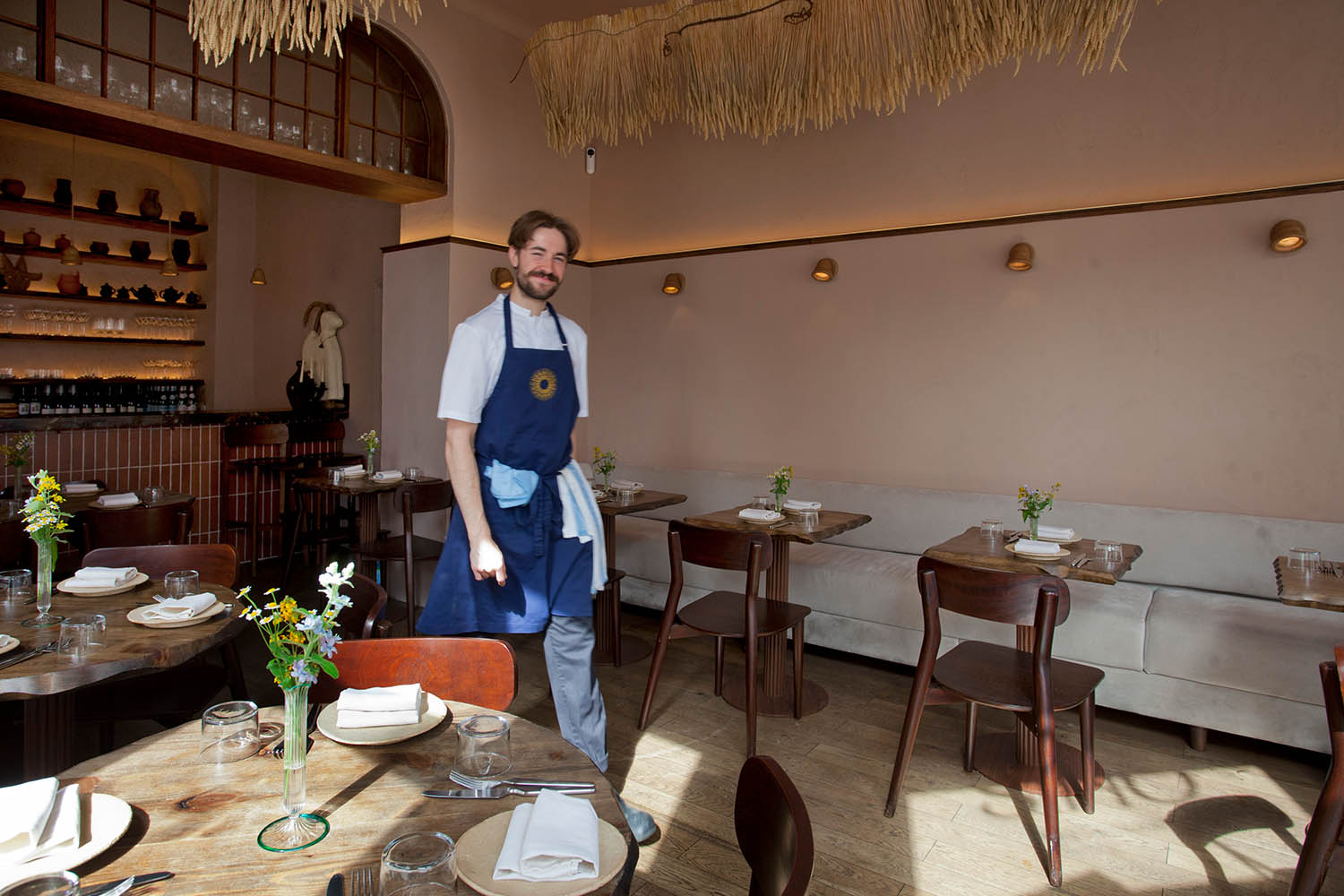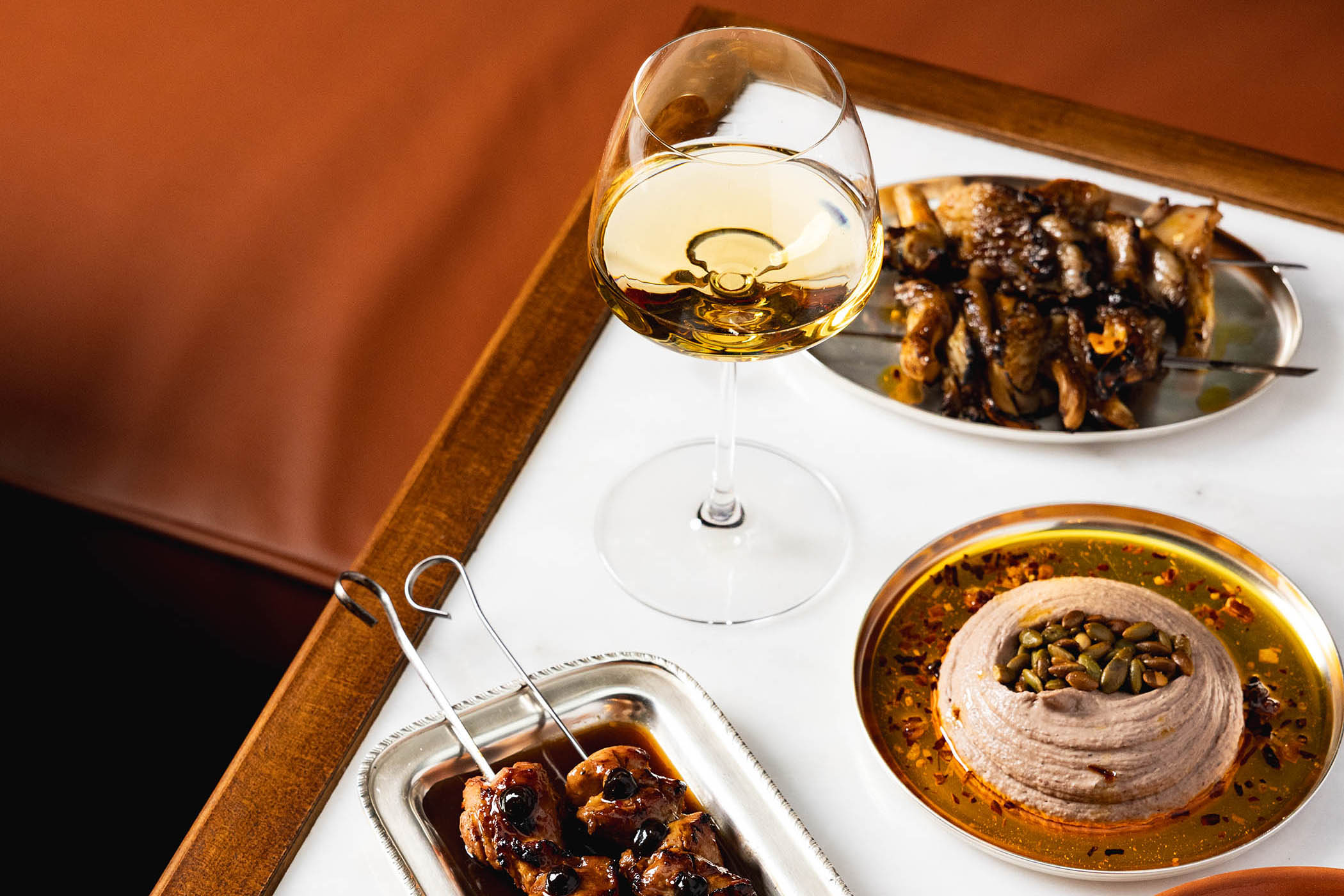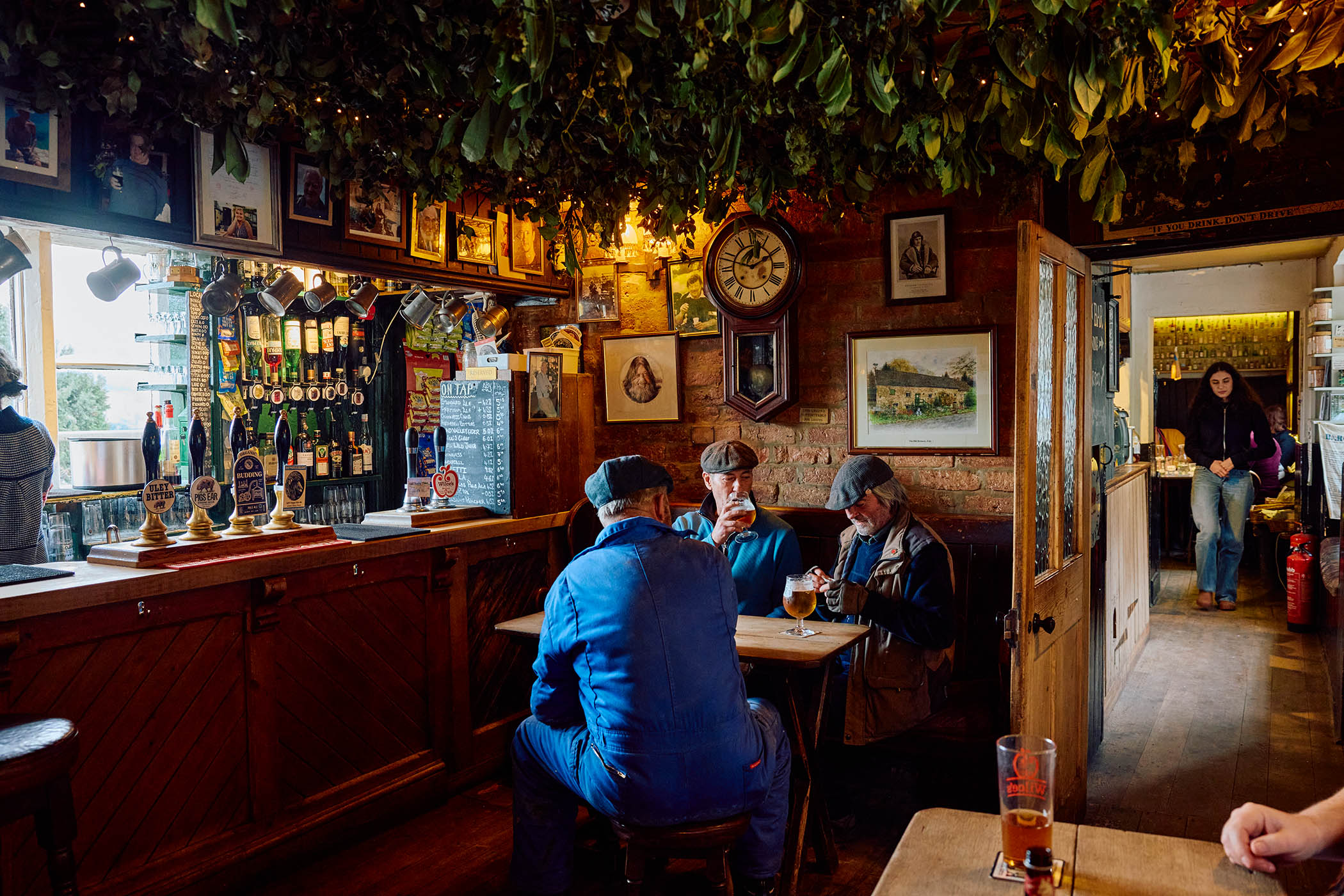Photographs by Sophia Evans
Going out for a meal is never just about the food. For me, any culinary experience has also to involve exploring an interesting area of London. So my recent visit to the three-month-old café Sino, taking me to All Saints Road in Notting Hill, proved a perfect outing.
It was in this area that many of the Windrush generation settled after the war. There was also a large gay community living in North Kensington in the 50s. Both groups were ghettoised by intolerance and harassed by vindictive policing. When I told one of my friends where I was going, he said, “A posh restaurant in All Saints Road… Blimey, who would’ve thought it?” In those days, the area was a slum ruled by crooked landlords, though it throbbed with life and rebellion.
Opposite the restaurant is a plaque commemorating the Mangrove café, which was then a centre of culture and creativity. Nowadays the elegant mansions have been restored, and the mews are ablaze with brightly coloured houses. There are fascinating small shops with Caribbean food, designer jewellery, fabulous hats and crafts of all sorts. There is even one shop just for pussycats.
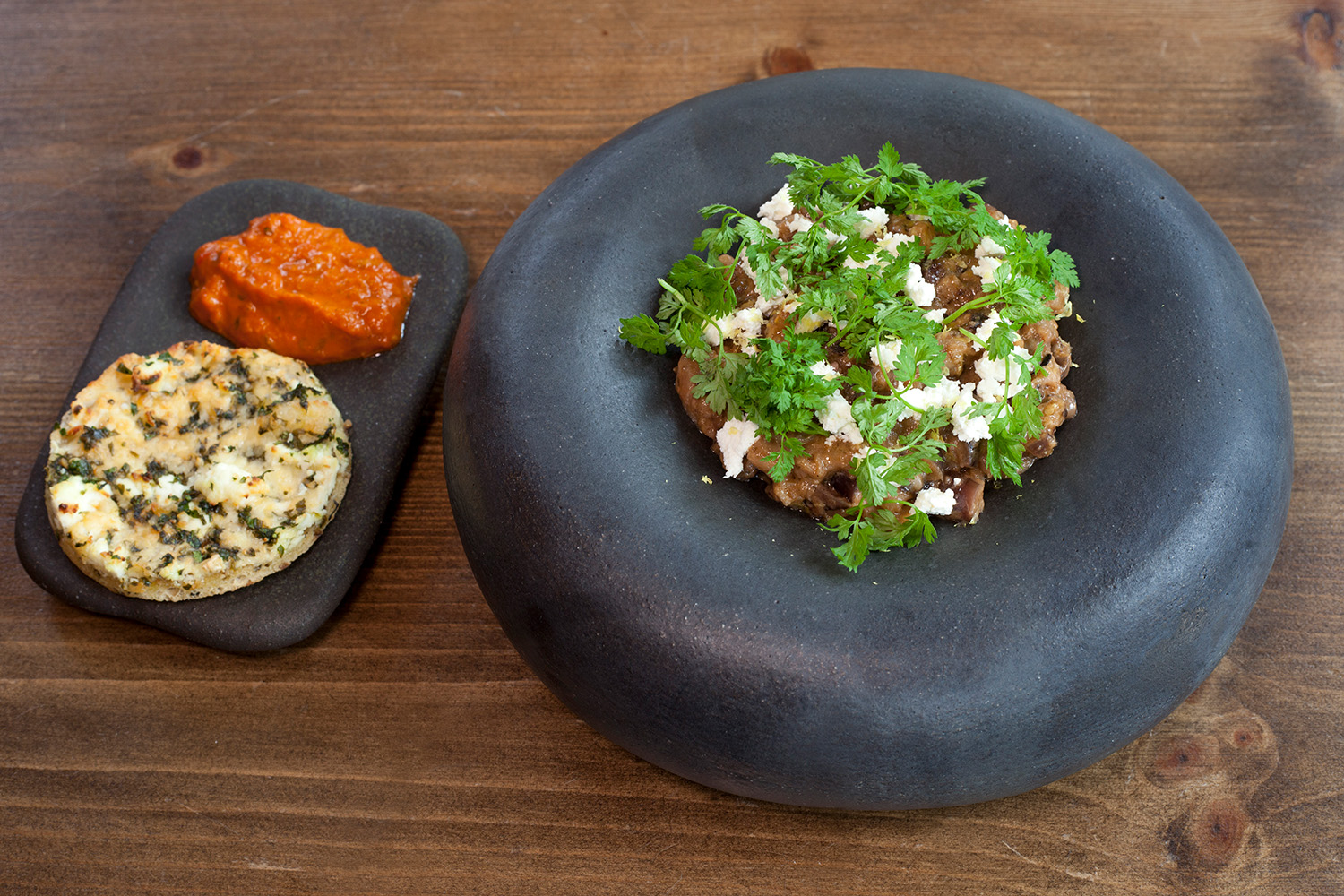
‘Murmurs of satisfaction’: aubergine, smoked goats cheese and Kyma cheese bread
This part of Notting Hill, the corner of All Saints Road and Lancaster Road, has a village atmosphere. When my grandson, Louis, and I arrived, it was buzzing with cosmopolitan life – perhaps more than usual, it being the week before the carnival, which has its origins in the road. We walked through the door of what looks like a corner shop, and we were in the home of the most recent immigrants to the area: the Ukrainians.
When Polina Sychova decided to open a restaurant in London she asked Eugene Korolev, a gourmet chef who was serving in the Ukrainian army, to join her. Korolev had been forced to close his restaurant in Dnipro, and he was pleased to return to cooking. Then other Ukrainian refugees joined the staff.
The elegant décor conjures up a sense of a nation I admit I knew little about until the recent desperate conflict. The rustic simplicity reflects a country place known as the “bread basket of the world”. (I had no idea that Ukraine supplies most of the grains used by the rest of the world.) Sino translates as “hay”, and hanging from the ceiling is a large dramatic sculpture made of it, giving this small room a magical sense of landscape. The walls of the room are roughly plastered and the light fittings are made in Ukraine of handcrafted clay. The chunky dark-wood tables also come from their homeland, as do all the pottery plates, cups and bowls.
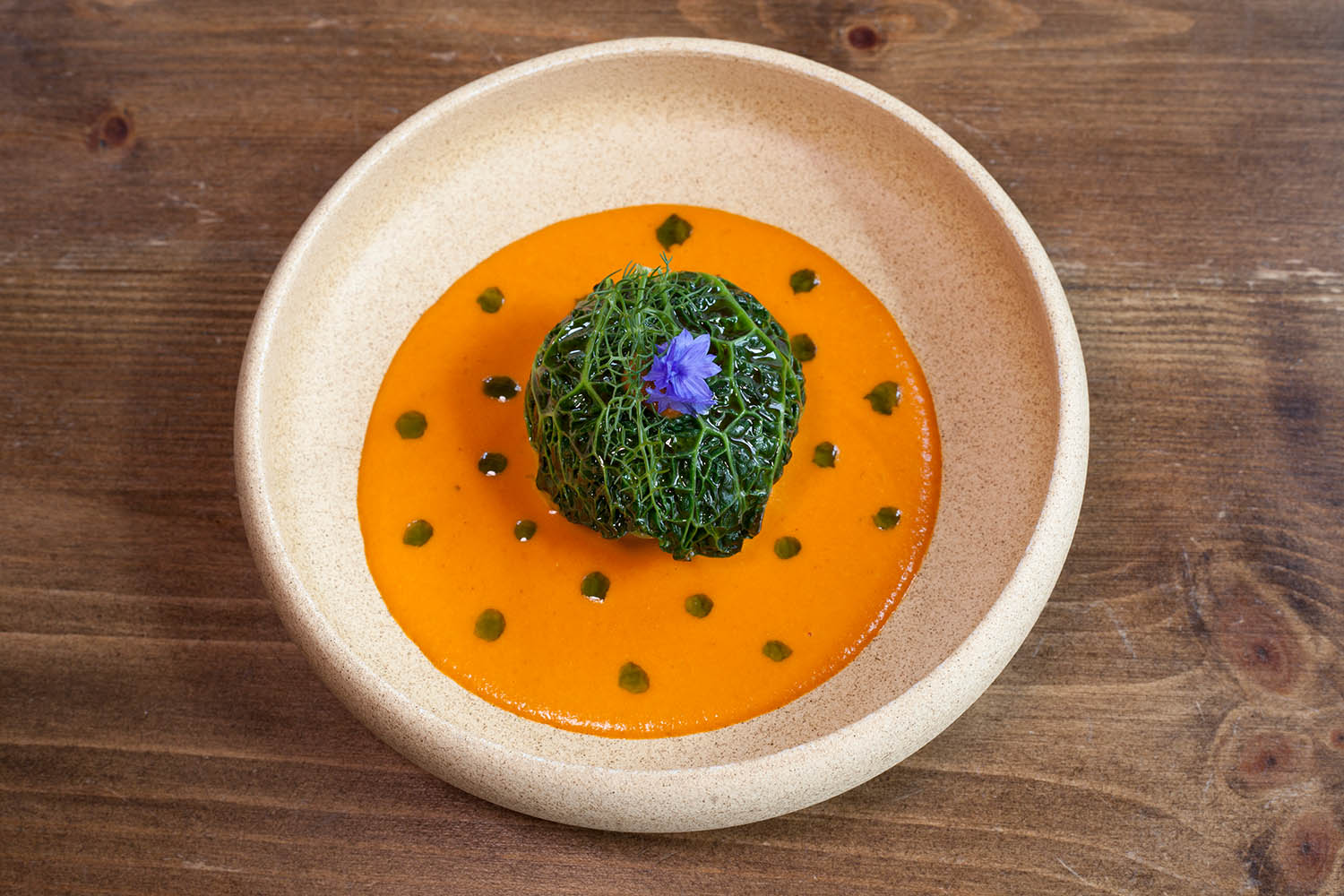
‘A work of art’:crayfish, cabbage, tomato veloute
On the tables are little glass jars of wildflowers, and on the walls, for the old ladies with bad backs, comfortably padded banquettes. I and my fairly cynical 18-year-old grandson felt genuinely transported to a comforting, rural world, an effect achieved simply, without kitsch, and a lot of subtle style. Which prepares one for the similar approach in the food.
To appreciate fully what you are eating I suggest having a Ukrainian dictionary at the ready. There are words I have never come across on the menu, and grains I have not heard of. The brimming basket of bread was the first challenge. There was potato and honey bread, sourdough, Borodinsky rye and buckwheat. With the bread was some butter we were told was wildflower, topped with a malt reduction. I never discerned who or what Borodinsky was, but I would have been quite happy to forgo the rest of the menu and gorge solely on the crusty, fragrant, freshness of the bread and butter.
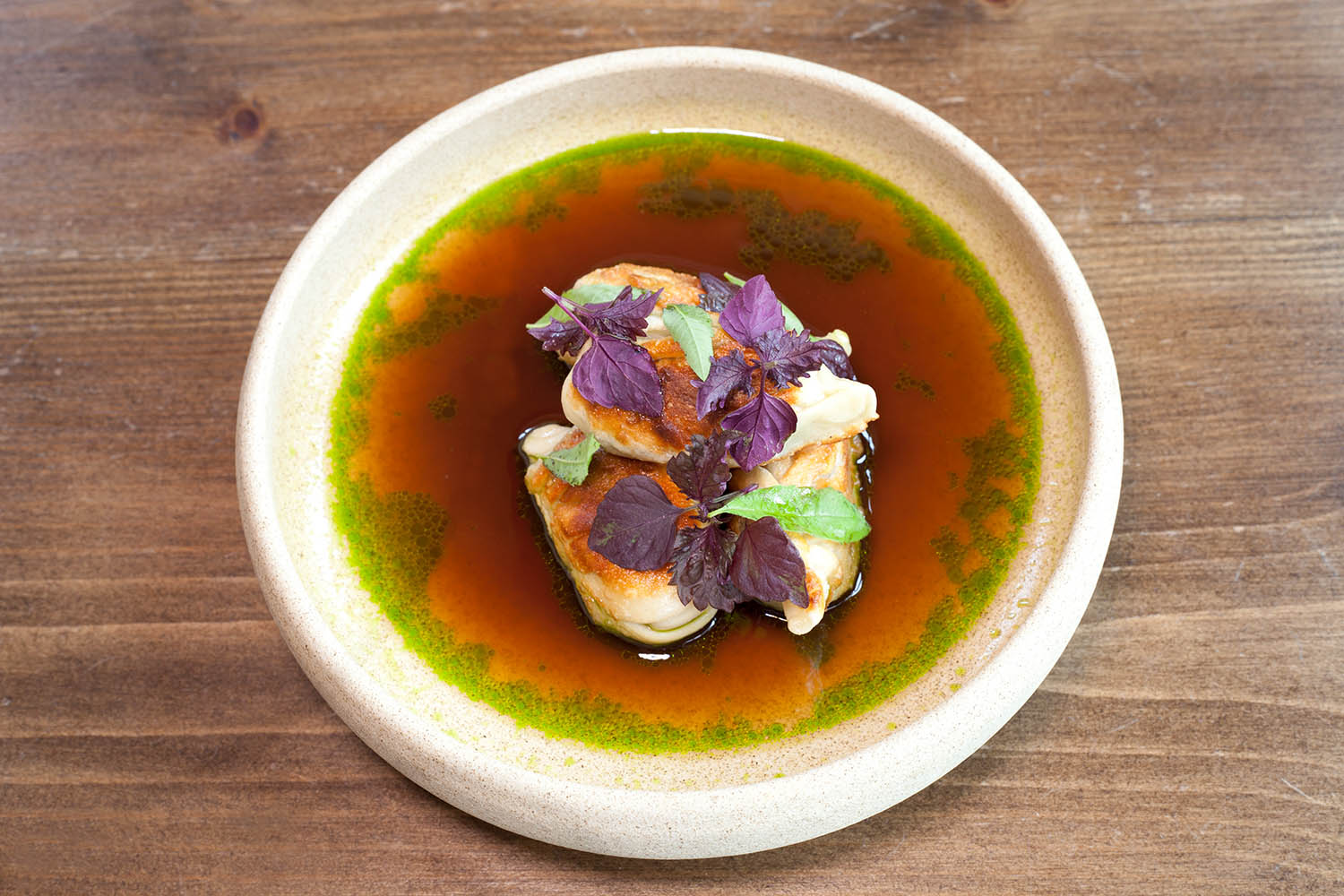
‘Every dish is a surprise’: vareniki (dumplings) and oxtail broth
For a starter, Louis thought he was safe with aubergine. Coming as it did, marinated in a broth, with dill flowers, fennel and garlic, and with smoked goat’s cheese and Kyrma cheese bread on the side, it was complicated to tackle, but he succeeded with murmurs of satisfaction. My dish was a work of art that I was reluctant to destroy: crayfish rolled in a green cabbage leaf sitting in a pool of pink tomato and dill velouté. It is, I was told, a posh version of a workman’s lunch.
For his main dish, Louis went for something with the word dumplings in it. It was listed as vareniki, with oxtail broth and a mushroom garum, and lemon verbena. What arrived did not look like anything he recognised as a dumpling. I did not get a good look at it, as he gobbled it down murmuring happily, “every dish is a surprise to me”.
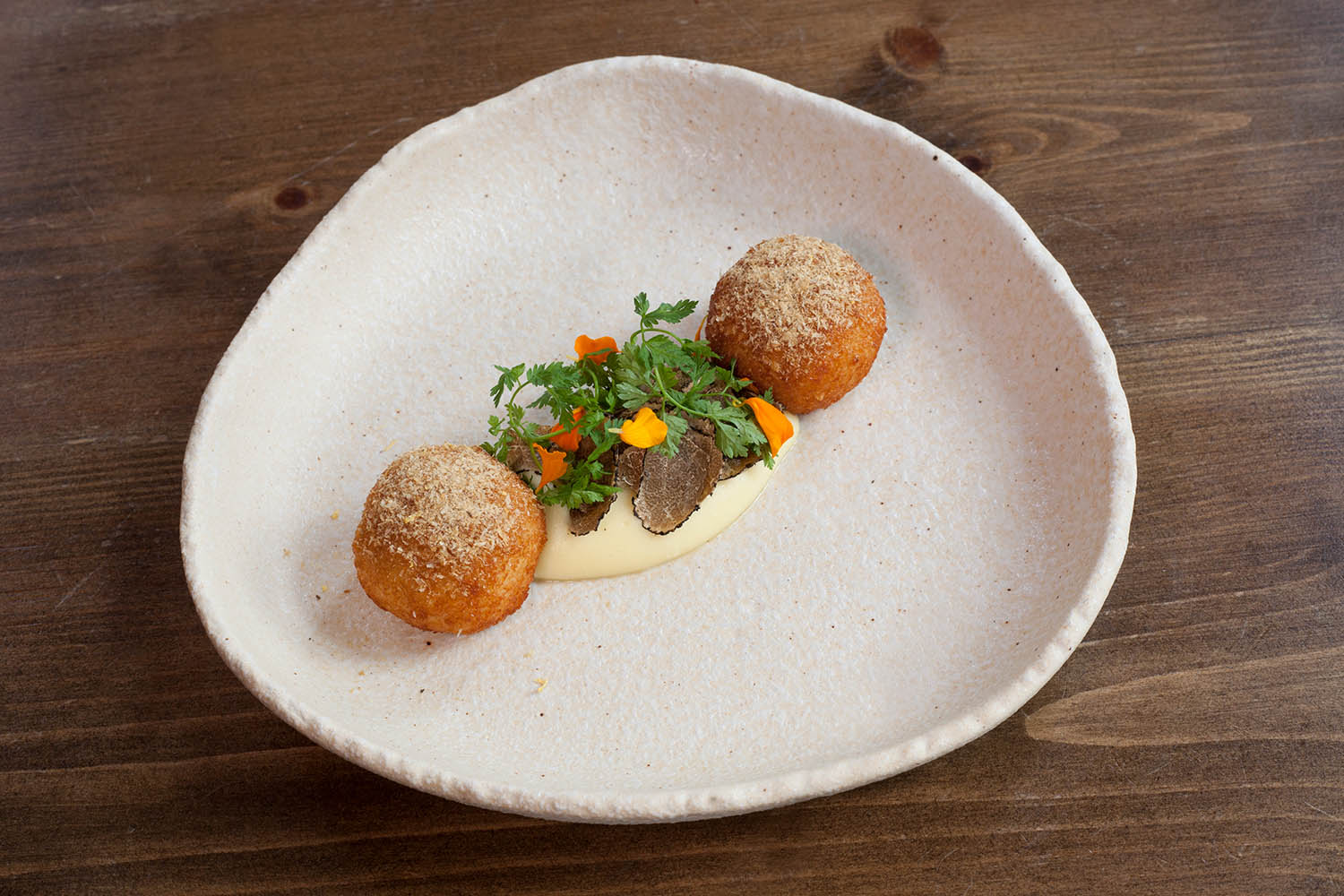
‘Two perfect balls of meat’:chicken Kiev with bison grass mash
I had the chicken Kyiv which wasn’t a bit like Marks and Spencer’s. Two perfect balls of meat that, when pierced, spurted wild-garlic butter. There were also truffles and bison-grass mash. I don’t think any bison were involved in the ingredients, but they maybe feed on the apparently fragrant grass used in the recipe.
Louis and I were by then smiling contentedly at this exciting taste adventure. I couldn’t drink alcohol as I was driving, but they gave me a sip of some Ukrainian wine: Kolonist riesling 2024, a white wine from Odessa. It was utterly unique, totally unlike any wine I have ever tasted – I loved it.
We paused before venturing on to the desserts. They really were beautiful. Not only the presentation – my plate came balanced on a sunflower – the tastes silenced us both. Louis had honey cake with buckwheat chocolate cream. I had halva ice-cream with pickled walnut.
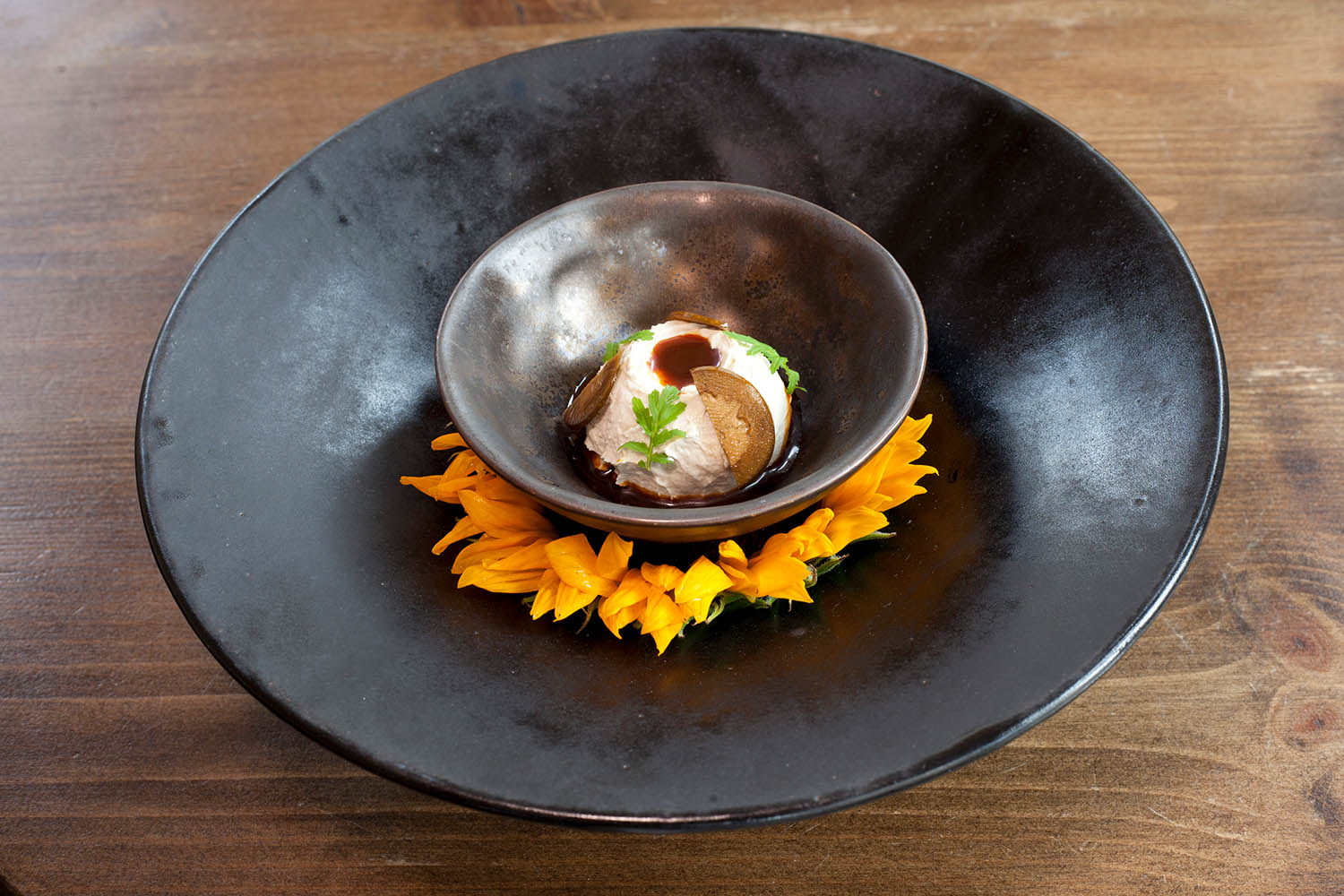
‘The taste silenced us’:halva ice cream
We finished our meal with Ukrainian mountain tea served in a black teapot, and mugs with lids on to keep the tea hot. It both tasted and smelt of the outdoors. Apparently, they use special mountain herbs mixed with mint to produce a nectar for the gods – well, me and Louis. If you ask the waiter how things are made, or what the ingredients are, they love to explain. I found the food intriguing, imaginative and uniquely tasty. I have one complaint. It is usual for me. Background music. I can’t bear it. But they did turn it down when I asked.
Apparently, the locals are making the Ukrainians feel very welcome. I hope the rules will not change in such a way as to jeopardise their right to stay. It was timely to be grateful for the contribution of immigrants to our country.
Sino, 7 All Saints Road, London W11 1HA (sinorestaurant.co.uk). First courses from £12. Mains from £21. Desserts from £12. Wine from £12
Newsletters
Choose the newsletters you want to receive
View more
For information about how The Observer protects your data, read our Privacy Policy
